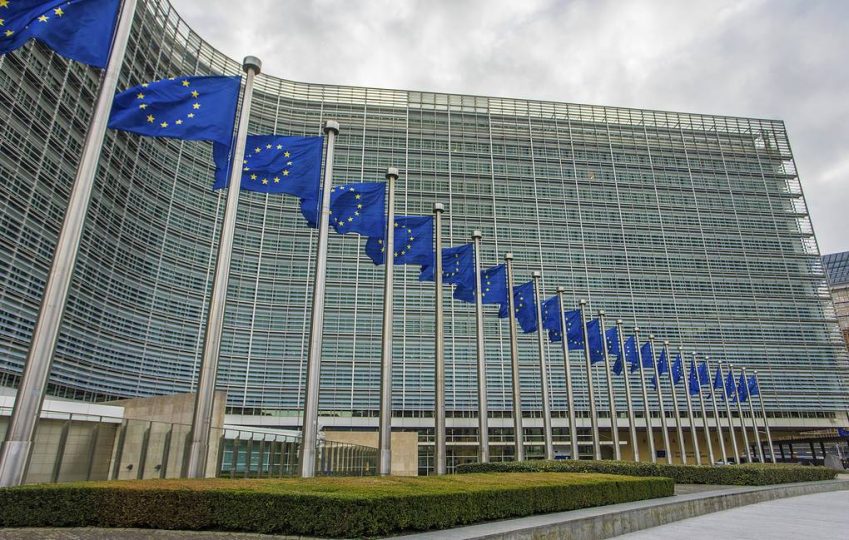Izvestia: EU ready to adopt sixth package of sanctions against Russia
On the night of May 31, EU leaders agreed to a partial embargo of Russian oil, making exceptions for pipeline supplies to Hungary, Slovakia, the Czech Republic, and Bulgaria. The European Commission reported that the ban on imports of crude oil from Russia to the EU will come into effect six months after the sanctions are enacted, while the ban on oil products would take effect after eight months. Experts interviewed by Izvestia believe Russia’s oil export revenue is unlikely to decline significantly due to the EU embargo, since Moscow is actively engaged in diversifying supplies.
High Representative of the EU for Foreign Affairs and Security Policy Josep Borrell stated that Brussels’ primary goal was to deprive Russia of financial resources. However, Chairman of Russia’s State Duma Energy Committee Pavel Zavalny told Izvestia, the embargo of sea supplies would not be a serious challenge for Russia. “We supplied about 2 mln barrels per day to the EU. Around 700,000 barrels were shipped via the Druzhba pipeline to countries such as Hungary, the Czech Republic, Slovakia, and Poland. The remaining two-thirds were shipped by sea. But the EU has already banned the entry of Russian oil in previous sanctions, so these measures are nothing new to us,” he said.
First Deputy Chairman of the State Duma Energy Committee Igor Ananskikh told the newspaper that the EU would be the one feeling the pinch of the oil embargo most of all. German MEP Gunnar Beck also told Izvestia that the partial embargo on oil supplies would further push up oil prices in Europe, which would fuel inflation and trigger a recession in countries like Germany.
The sanctions package would also disconnect major Russian banks from SWIFT. So far, only Sberbank is known to be affected. “Disconnecting from SWIFT does not change the current situation in international settlements. Domestic transactions do not depend on SWIFT and will be carried out by the bank in the standard mode,” the bank said.
The sanctions package is now expected to be reviewed by the Committee of Permanent Representatives on June 1. Then the measures will be published in the Official Journal of the EU, marking their entry into force.
Nezavisimaya Gazeta: Pentagon pursuing options to end hostilities in Ukraine
The US leadership seems to be extremely cautious about deciding on military-technical support for Ukraine. Apparently, it doesn’t want to completely break off relations with Moscow, Nezavisimaya Gazeta writes. According to US President Joe Biden, there are no plans to provide Kiev with supplies of multiple launch rocket systems (MLRS) capable of delivering strikes on Russian territory. Meanwhile, Chairman of the Joint Chiefs of Staff Mark Milley said that the best way out of the conflict would be peace talks between Moscow and Kiev, given the significant losses on both sides.
Milley did not specify the losses on both sides. However, the Russian Ministry of Defense reported that over a few months, Ukraine’s military potential has been depleted, the newspaper writes, adding that Kiev now could be using refurbished weapons and military equipment, as well as the arms the US and NATO countries had supplied. However, taking into account the fact that the Ukrainian Armed Forces continue to put up stiff resistance against the Russian army and the militias of Donbass, Kiev has received a lot and there could be noticeable losses for the Russian Armed Forces as well, Nezavisimaya Gazeta writes.
“It is unlikely that hostilities will end immediately. Kiev expects to take revenge and continues active hostilities against the Russian units and their allies,” military expert, retired colonel Vladimir Popov told the newspaper. He added that Ukrainian Presidential Adviser Aleksey Arestovich “voiced hopes for further military supplies, threatening that Kiev would show Washington an ‘exemplary model of hysteria’ if it did not provide the Armed Forces with MLRS.”
“The US should think about how much they need to flood such a wayward Ukraine with weapons. Not only are the Americans dissatisfied with the hostilities, but also so are many European countries, along with Turkey, who demand that the parties end the conflict and sit down at the negotiating table,” the expert added.
Nezavisimaya Gazeta: US, Chinese defense chiefs may meet in Singapore
President of Taiwan Tsai Ing-wen said that the United States plans to set up cooperation between its National Guard and the Taiwanese military. US President Joe Biden has recently vowed to use force if China attacked the island, and it seems that the US might have taken another step towards conflict with Beijing as the danger of unintentional clashes between the navies and air forces of the two powers grows in the South China Sea, Nezavisimaya Gazeta writes. However, the parties plan to remedy the situation by preparing a meeting between the US and Chinese defense departments.
A conflict between China and the United States is becoming more likely since US-Taiwan military interaction is mounting. The South China Morning Post writes that the two powers risk becoming unwitting participants in an accidental or unintentional military clash at sea or in the air.
Still, both Beijing and Washington would want to avoid such a scenario, Nezavisimaya Gazeta writes. According to The Wall Street Journal, the parties are setting up a meeting between Chinese Defense Minister Wei Fenghe and Pentagon chief Lloyd Austin in Singapore on June 10-12 as part of the IISS Shangri-La Security Dialogue 2022.
Chief Research Fellow at the Institute for the US and Canadian Studies at the Russian Academy of Sciences Vladimir Batyuk believes that joint exercises of the US National Guard and the military of Taiwan are possible, but unlikely to radically change the balance of power in the region. “As for Biden’s statements about protecting Taiwan, everything depends on how the hypothetical conflict around the island develops. If this is a lightning-fast operation to seize the island, then the US simply would not have time to respond. If the conflict drags on, then the US will have a chance to intervene in order to try to wear down China,” he added.
Vedomosti: Russia and Turkey may discuss exports of Ukrainian grain
Russian Foreign Minister Sergey Lavrov will arrive in Turkey on June 8, and his delegation will also include military personnel, according to Turkish Minister of Foreign Affairs Mevlut Cavusoglu. A source in the Russian Foreign Ministry told Vedomosti that “visits to several countries are planned”, including Turkey, without specifying the meeting’s agenda. Transporting Ukrainian grain could be one of the topics that Lavrov plans to discuss in Turkey.
During a telephone conversation with Turkish President Recep Tayyip Erdogan on May 30 Russian President Vladimir Putin said that Moscow was ready to facilitate grain exports if the Black Sea ports are cleared of mines.
Since the beginning of hostilities in Ukraine, Turkey has positioned itself as an “inevitable intermediary,” researcher in the Turkish sector of the Institute of Oriental Studies of the Russian Academy of Sciences Amur Gadzhiev told the newspaper. Ankara maintains good relations with Moscow, Kiev, and the collective West, so it is likely to be able to constructively participate in resolving the issue, he added.
As for Lavrov’s visit, military issues will be discussed, but not anything on the military-technical topic. Rather, the situation in Syria, Ukraine, and Nagorno-Karabakh will be the focus, he added. According to the expert, Syria is now the most important topic for Turkey.
Vedomosti: Russia to offer preferential tax deal to large tech companies
The Russian Ministry of Economic Development has put forward a proposal to create a preferential tax arrangement for large private innovative companies. The new category may include developers and manufacturers of high-tech goods that are not subject to existing benefits for IT organizations and electronics manufacturers, Vedomosti writes referring to the bill being prepared by the ministry.
According to the newspaper, the proposal is aimed at supporting high-tech companies with revenues of 1-15 bln rubles ($16.35-245.33 mln), which are in a difficult position in the current macroeconomic situation. The document proposes to exempt these companies from income and property taxes for 10 years and reduce their insurance premium rates from 15% to 7.6%. The ministry plans to form a special register, which will include no more than 850 companies.
The key condition for obtaining these benefits will be prioritizing investments over dividends, a representative of the Economic Development Ministry told Vedomosti, confirming the bill is under development. According to the source, the document is planned to be submitted to the government in June.
TASS is not responsible for the material quoted in these press reviews.
SOURCE: TASS




